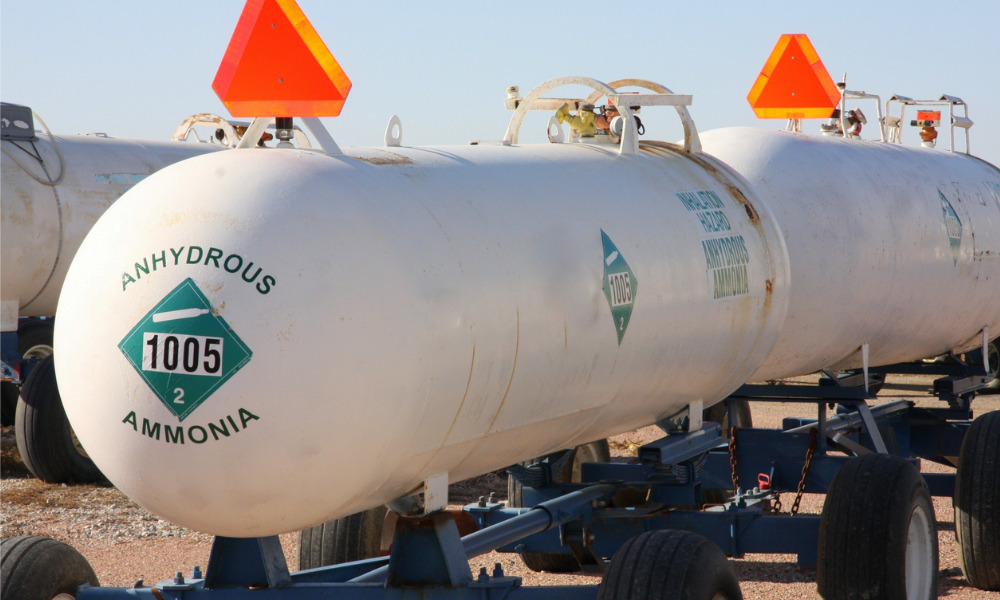Employer must pay five-figure fine

British Columbia employer Teck Metals Ltd. has been fined $55,060.11 for an occupational health and safety violation relating to ammonia.
The incident happened at the company’s Trail worksite. Liquid anhydrous ammonia was released when loss of containment occurred from a railcar at an unloading area.
The site and adjacent workplaces were evacuated, and several people were exposed to the ammonia vapour, according to WorkSafeBC.
Following an inspection of the site, WorkSafeBC found that the firm had not adequately communicated or trained its workers in safe work procedures for identifying and responding to ammonia leaks. This included a lack of practice drills for all workers involved in ammonia-related work, and a lack of clear procedures and supervision to ensure procedures were being followed.
“The firm failed to provide its workers with the information, instruction, training, and supervision necessary to ensure their health and safety. This was a high-risk violation,” said WorkSafeBC.
Ammonia is a colourless gas that is dangerous to people’s health.
Inhalation of this gas can cause death, severe irritation of the nose and throat and life-threatening accumulation of fluid in the lungs (pulmonary edema), according to the Canadian Centre for Occupational Health and Safety (CCOHS).
If ammonia comes into contact with a worker’s skin, it can irritate or burn the skin and cause permanent scarring. Ammonia can also irritate or burn the eyes, according to CCOHS.
If an accidental release of ammonia occurs, those in the area must:
- Evacuate the area immediately.
- Isolate the hazard area.
- Keep out unnecessary and unprotected personnel.
- Use personal protective equipment as required.
- Eliminate ignition sources.
- Increase ventilation to area or move leaking container to a well-ventilated and secure area.
To contain and clean up ammonia, CCOHS said that employers must:
Knock down gas with fog or fine water spray.
- Do not direct water at spill or source.
- If possible, turn leaking container so that gas escapes rather than liquefied gas.
- Dike spilled product to prevent runoff.
Aside from the risk of injury while doing their job, Ontario construction workers are also exposed to unsafe levels of a known lung carcinogen: diesel engine exhaust, found a previous new report.
In January 2020, a labour union president lashed out against the Toronto Transit Commission (TTC) for “not prioritizing the health and safety” of its subway workers after a report highlighting the elevated levels of pollutants in the city’s train system was released.





